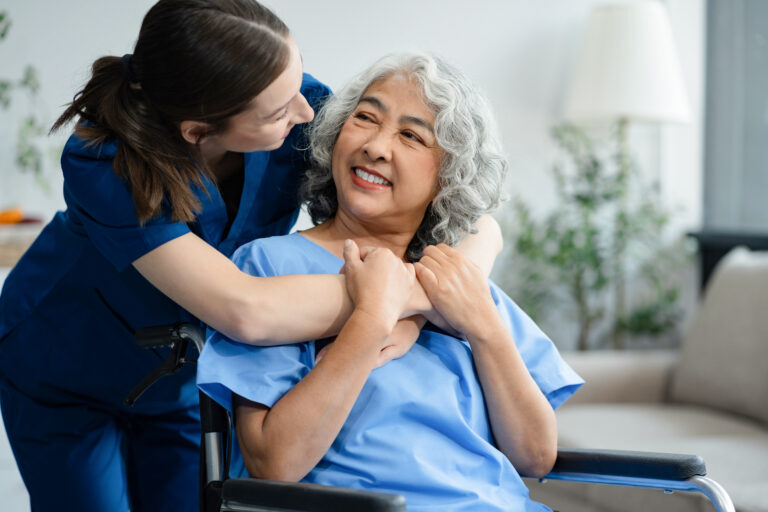The path to becoming a caregiver is rarely linear. For many, it begins unexpectedly, helping a parent after surgery, caring for a spouse during illness, or stepping in to support an aging relative. Others may choose caregiving as a career, seeking formal roles in healthcare or residential settings. In either case, one question often arises: What’s the difference between caregiver certification and informal training?
At Zen Caregiving Project, we believe every caregiver, whether professionally certified or personally committed, deserves support, education, and community. Understanding the differences between formal certification and informal learning can help you make informed decisions about the kind of education that’s right for you or your loved ones.
This guide breaks down the differences, explores where mindful caregiving fits in, and helps you chart a path toward more intentional, compassionate caregiving.
What Is Caregiver Certification?
Caregiver certification refers to a structured training process that qualifies someone to provide care in a formal or professional capacity. These programs are typically offered by vocational schools, community colleges, or healthcare training institutions and are often required for roles in home health care, assisted living, or long-term care facilities.
Key Features of Caregiver Certification Programs:
- Regulated Curriculum: Courses follow a state or national standard and cover topics such as medication management, infection control, mobility assistance, CPR, and safety procedures.
- Credentialing: Upon successful completion, participants receive a certificate that may be recognized by employers or licensing bodies.
- Job-Oriented: These programs are designed to prepare individuals for employment in caregiving positions, often as certified nursing assistants (CNAs) or home health aides (HHAs).
- Compliance-Focused: Caregiver certification is often required to meet legal or insurance-related standards, especially when providing care for vulnerable populations.
While these certifications provide essential technical knowledge, they often focus more on physical care than emotional or relational skills, an area where additional training may be helpful.
What Is Informal Caregiver Training?
Informal training, on the other hand, refers to learning that happens outside of a formal certification process. This includes self-education, experiential learning, and non-accredited programs like those offered by nonprofits, support organizations, or mindfulness-based programs like ours.
Common Forms of Informal Training:
- Attending caregiver workshops or webinars
- Reading caregiving books or guides
- Participating in peer support groups
- Completing non-certification programs (e.g., Zen Caregiving Project’s Mindful Caregiving Education)
- Volunteering with a local hospice, hospital or senior living community
- Learning through personal caregiving experience
Informal training is often pursued by family caregivers, who provide care without pay and may not intend to work in a formal caregiving role. However, it can also be incredibly valuable for professionals seeking to enhance their emotional capacity, self-awareness, and connection with those they care for.
For example, trusted organizations such as the Family Caregiver Alliance offer practical guides, webinars, and emotional support resources that complement informal caregiver training.
Comparing the Two: Certification vs. Informal Training
Here’s a quick side-by-side comparison to clarify the distinctions:
| Feature | Caregiver Certification | Informal Caregiver Training |
| Structure | Highly structured, regulated curriculum | Flexible, topic-specific learning |
| Credentialing | Includes a certificate or license | No formal certification provided |
| Focus Areas | Technical tasks, legal compliance | Emotional support, mindfulness, and communication |
| Audience | Aspiring professional caregivers | Family caregivers or professionals seeking depth |
| Cost & Time Commitment | Often longer and more expensive | More accessible and time-flexible |
Both paths have their place, and many caregivers benefit from a combination of the two. Caregiver certification equips you for professional care roles, while informal training can deepen emotional resilience and strengthen day-to-day caregiving relationships.
Where Does Zen Caregiving Project Fit In?
At Zen Caregiving Project, we offer non-certification, mindfulness-based education that complements both formal and informal learning.
Our programs are designed to support:
- Family caregivers who are emotionally overwhelmed or navigating grief
- Professionals looking to build deeper presence and compassion in their roles
- Anyone seeking sustainable ways to care for others without sacrificing their own well-being
While we don’t offer caregiver certification, our Mindful Caregiving Education (MCE) programs focus on what many certification courses leave out: emotional health, awareness of loss, and practical mindfulness strategies that support sustainable caregiving.
Why Emotional Resilience Matters Just as Much as Technical Skill
Whether or not you pursue caregiver certification, your emotional well-being will play a central role in how you show up for those in your care. Many caregivers report feeling unprepared for the emotional toll of caregiving, especially when facing chronic illness, dementia, or end-of-life situations.
This is where our approach shines.
Our courses teach:
- Mindfulness practices to reduce anxiety and increase presence
- Tools to navigate grief and emotional overload
- Communication skills for challenging care conversations
- Boundary-setting and self-care techniques
- Strategies for sustaining compassion without burning out
These skills can be life-changing, especially when paired with the technical knowledge acquired through certification or experience.
When Should You Pursue Caregiver Certification?
You may want to pursue caregiver certification if:
- You’re planning to work in healthcare or eldercare
- You’re required to have credentials for employment
- You want to gain in-depth technical and medical knowledge
- You need insurance or state-compliant qualifications to provide paid care
Many professionals choose to combine certification with informal or mindfulness-based education to become more holistic, emotionally intelligent caregivers.
When Is Informal Training Enough?
Informal training may be ideal if:
- You’re a family caregiver, not seeking a formal healthcare job
- You want to reduce emotional burnout or stress
- You’re already working in care and want to deepen your interpersonal and mindfulness skills
- You’re looking for a way to enhance your impact as a volunteer caregiver
- You’re looking for practical, accessible education without needing a certificate
Zen Caregiving Project’s offerings are particularly well-suited to caregivers in emotionally intensive roles, whether you’re new to caregiving or seeking to renew your sense of purpose after years of service.
How to Get Started
If you’re interested in exploring mindful caregiver education, we invite you to explore our course offerings. Our programs are conducted live and online, with skilled facilitators guiding you through interactive discussions, guided meditations, and practical skill-building sessions.
To learn more or register for an upcoming program, visit ZenCaregiving.org.
Choose the Path That Supports You Best
There is no one-size-fits-all approach to caregiving education. Whether you pursue caregiver certification for professional growth or choose informal training to strengthen your emotional foundation, the most important thing is finding what meets your current needs.
At Zen Caregiving Project, we’re here to support you wherever you are on your caregiving journey. Our programs are designed to help you stay grounded, connected, and resilient because caregiving isn’t just a task. It’s a deeply human experience.Ready to take the next step? Visit ZenCaregiving.org to discover how our mindfulness-based caregiver education can support you.


